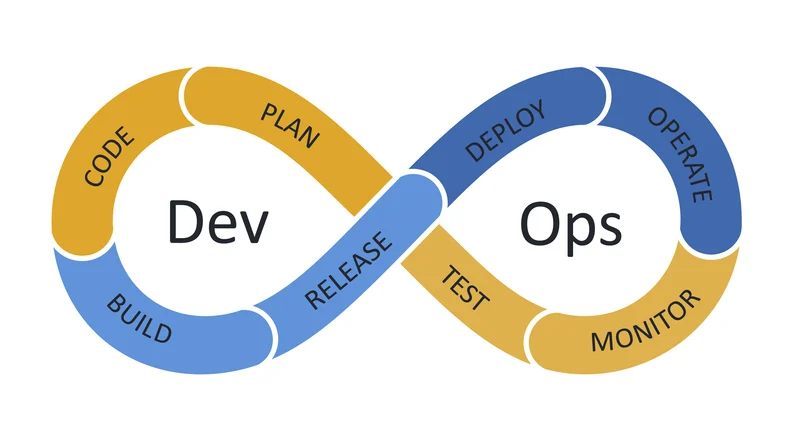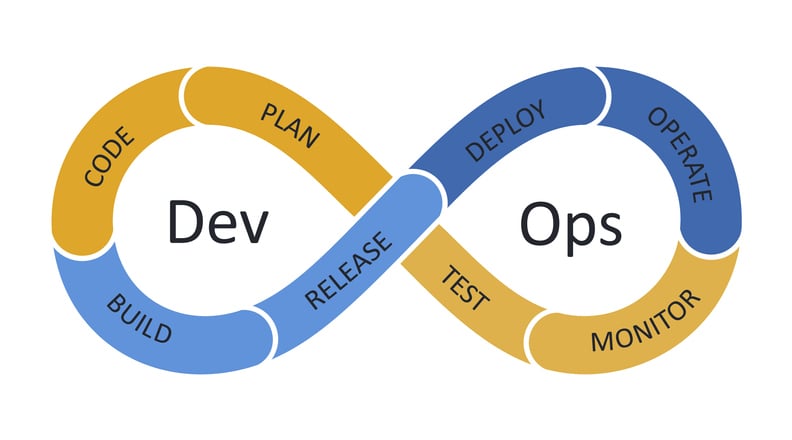By Abdullah Olalekan Abdulfatah
“DevOps engineers don’t really need the knowledge of git”. That is something you might say to yourself if you are still quite new to programming. after all, isn’t DevOps all about infrastructure, deployment, and automation? okay! maybe testing too.

Why would they need to border about the version control system that’s typically the domain of developers? Well, if you’ve been nodding along with this line of thinking, I am here to say – you are mistaken, ha! ha!!
DevOps engineers absolutely need to know Git. Why, you ask? Well, we will dive into that and uncover the truth about the critical role of Git in the world of DevOps but first, let us see what could have created such thinking to start with.
The Myth
It’s very easy to see where the misconception comes from. When people think of DevOps, they often picture complex deployment pipelines, cloud infrastructure, and automation tools.
Git, on the other hand, is usually associated with developers pushing and pulling code, resolving merge conflicts, and managing branches. It’s easy to see why some might believe that Git doesn’t really factor into the DevOps equation.
This myth is further fueled by the fact that DevOps is often seen as a bridge between the development and operations teams. The focus tends to be on the ‘Ops’ part of DevOps, with less attention given to the ‘Dev’ side. As a result, the importance of understanding developer tools like Git can be overlooked. But what is the reality?
The Reality
But here’s the thing: DevOps isn’t just about managing servers or deploying code. It also involves improving collaboration and efficiency across the entire development lifecycle. And guess what tool is absolutely essential for that? You git it right – Git.
Okay. But, why?
Git is more than just a version control system. It’s a tool that enables teams to work together efficiently. It allows multiple developers to work on the same codebase without stepping on each other’s toes.
It keeps a record of all changes, making it easier to track down bugs and understand the history of your project. It facilitates code reviews and discussions about code changes. In short, Git is a tool that enables the kind of collaboration that DevOps is all about.
Moreover, Git plays a crucial role in Continuous Integration/Continuous Deployment (CI/CD), a key practice in DevOps. CI/CD pipelines often rely on Git repositories to trigger builds and deployments.
When a developer pushes code to a Git repository, it can automatically kick off a series of actions like running tests, building the application, and deploying it to a staging or production environment.
we can’t forget another powerful feature of Git: rollbacks. If something goes wrong, Git makes it easy to revert to a previous version of your code. This can be a lifesaver when you’re dealing with a production issue and need to quickly restore a stable state.
So, while it might seem like Git is just a developer’s tool, the reality is that it’s a vital part of the DevOps landscape. Understanding Git is not just a ‘nice-to-have’ for DevOps engineers – it’s a must.
Basic Git Commands for DevOps
Haha! This is unfortunately not a git tutorial. We’re only here to debunk the supposed myth. Do not be worried though, I might cover Git commands and Git workflows in a future article. Stay tuned!
Conclusions
In DevOps, Git is not just a version control system. It’s a collaboration tool, an enabler of efficient workflows, and a key player in CI/CD pipelines. It is an unsung hero of DevOps.
Abdullah Olalekan Abdulfatah with U.S.-based Frontend Engineer
Do you have a flair for Citizenship Journalism? Share story(ies) of happenings in your area with The NewsZenith on WhatsApp: 08033668669 or thenewszenith@gmail.com








